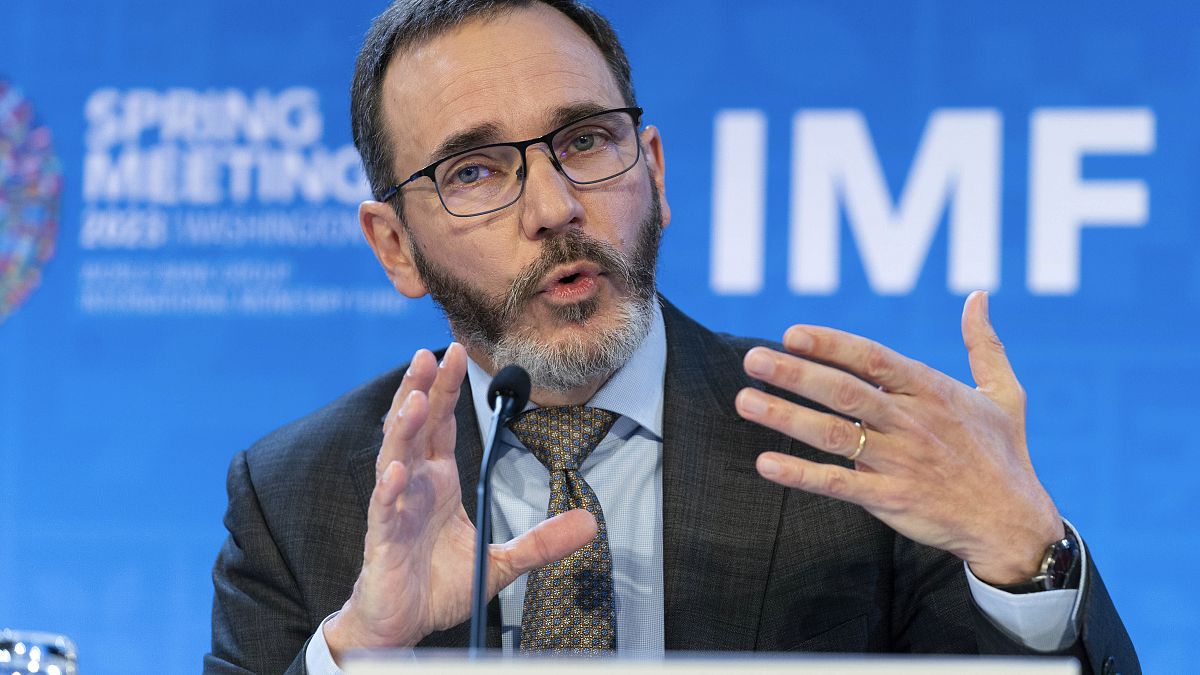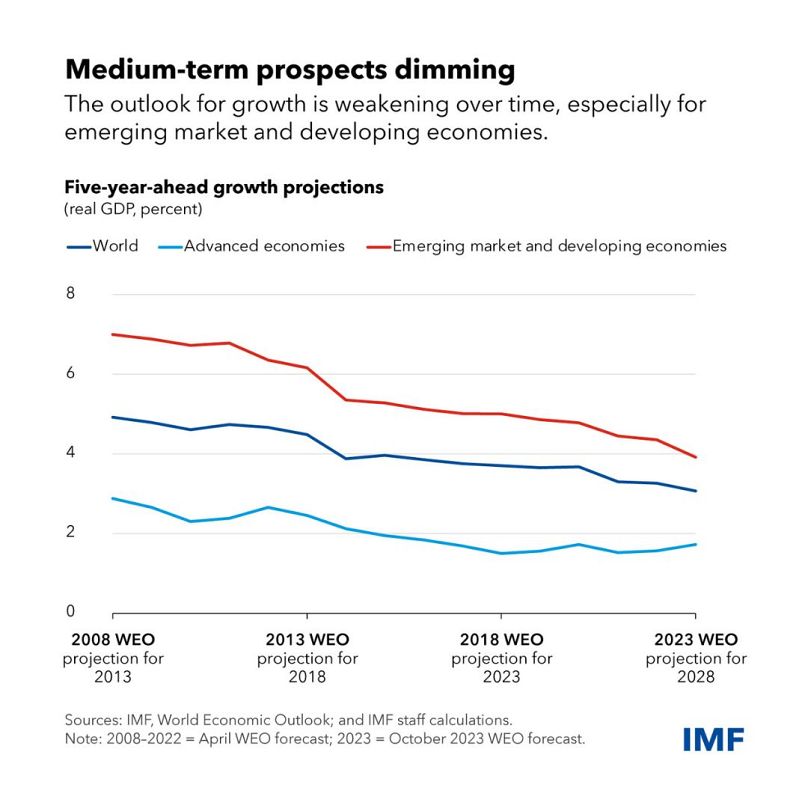The global economy continues to recover, but GDP growth is going to slow down over the next two years, the IMF has said in its latest economic outlook.
The global economy is going to grow less than last year, according to the International Monetary Fund’s (IMF) latest forecast, projecting a 3% GDP growth in 2023, down from 3.5% the year before.
“This remains well below the historical average”, states the report.
The moderate growth is partially due to the long-term consequences of the COVID-19 pandemic, Russia’s war in Ukraine, and also due to the effects of monetary policy tightening necessary to reduce inflation, withdrawal of fiscal support amid high debt, and extreme weather events.
For 2024, the forecast shows 2.9% GDP growth globally, a slight 0.1% downgrade from the last outlook published in July.
Inflation is decelerating but remains high
Global headline inflation continues to decelerate, with the IMF forecasting 5.9% this year on a year-over-year basis, and 4.8% in 2024 following 9.2% in 2022.
Core inflation, which excludes food and energy prices, is also projected to decline, albeit more gradually, to 4.5% next year.
According to the report, most countries aren’t likely to return to target inflation until 2025.
It could fuel concerns that the tight monetary policy is here to stay, setting elevated interest rates and slowing the economy.
Commodity prices could become more volatile amid climate and geopolitical shocks - a serious risk to disinflation, the report says.
Food prices remain elevated and could be further disrupted by an escalation of the war in Ukraine, it adds.
‘Growth is uneven’
The economic slowdown is more pronounced in advanced economies, according to the IMF.
The US growth outlook has been brightened by strong domestic consumption and investment activity, but while the country’s GDP is estimated to grow by 2.1% in 2023, next year the IMF’s forecast is only 1.5%.
The euro area shows a weaker recovery, reflecting greater exposure to the war in Ukraine.
The IMF report projects 0.7% economic output in 2023 and a moderately stronger 1.2% in 2024.
Many emerging market economies show resilience, with the notable exception of China, where the pandemic-related slowdown and the property sector crisis have had a great impact on its economic output.
The IMF expects the world’s second largest economy to expand by 5% this year and 4.2% in 2024.
Forces at play
A strong demand has helped services, in general, to mostly recover from being buffeted by the pandemic, meaning that economies mostly relying on the services industry have a brighter outlook.
Labour markets in advanced economies remain buoyant with historically low unemployment rates helping to support activity.
However, investments as well as the housing market are suffering from tighter credit conditions, the IMF said.
Firm bankruptcies are increasing in some economies, although from historically low levels.
Among the current risks, the IMF highlights the current issues in the Chinese economy, saying that the diminished consumer confidence and very low level of investment “poses significant risks for the global economy.”
The possibility of an intensifying real-estate crisis is a major red flag, the IMF says, adding that it’s important to promptly restructure struggling property developers and preserve financial stability.
The IMF urges China’s economy to pivot away from growth that relies on credit for the real estate sector.
Priorities to focus on
The IMF states that it’s important for countries to maintain tight monetary conditions, while inflation targets are not in sight. Afterwards, however, a gradual lowering of the key interest rates could help economies to expand further.
As well as monetary policy, fiscal policy needs to adjust, rebuild buffers, including by removing energy subsidies, the fund says.
Its report also highlights the importance of the green transition.
A previously unveiled part of the report suggests that the private sector should cover a major share of climate investment needed, especially in emerging markets and developing economies (EMDEs).
The report recalls that the climate policies of major banks and insurance companies are not yet aligned with net zero emission targets.
The IMF also recommends that countries should safeguard the flow of critical minerals, needed for the climate transition, and of agricultural commodities. Such “green corridors” would help reduce volatility and accelerate the green transition, it says.




